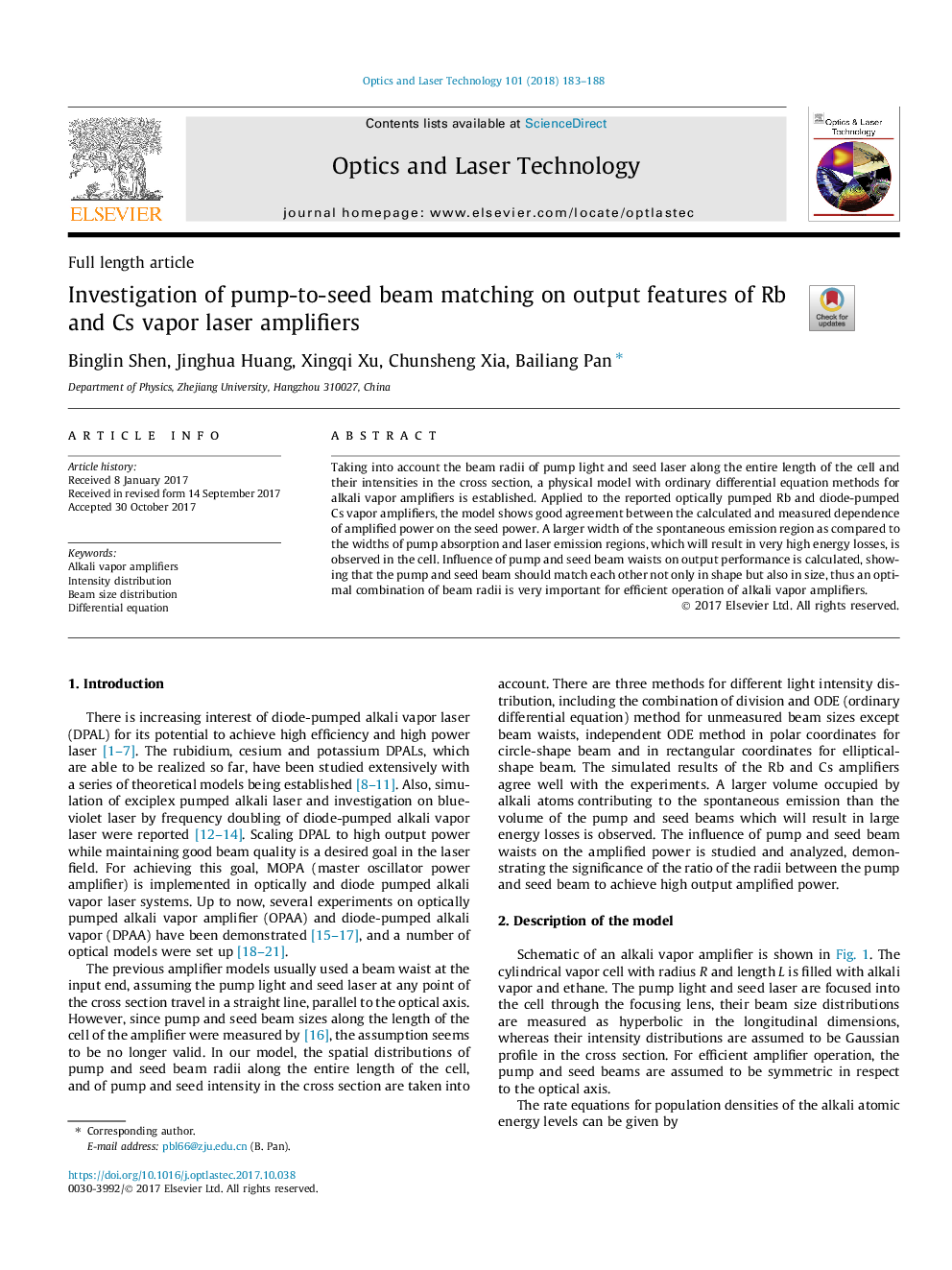| Article ID | Journal | Published Year | Pages | File Type |
|---|---|---|---|---|
| 7129306 | Optics & Laser Technology | 2018 | 6 Pages |
Abstract
Taking into account the beam radii of pump light and seed laser along the entire length of the cell and their intensities in the cross section, a physical model with ordinary differential equation methods for alkali vapor amplifiers is established. Applied to the reported optically pumped Rb and diode-pumped Cs vapor amplifiers, the model shows good agreement between the calculated and measured dependence of amplified power on the seed power. A larger width of the spontaneous emission region as compared to the widths of pump absorption and laser emission regions, which will result in very high energy losses, is observed in the cell. Influence of pump and seed beam waists on output performance is calculated, showing that the pump and seed beam should match each other not only in shape but also in size, thus an optimal combination of beam radii is very important for efficient operation of alkali vapor amplifiers.
Related Topics
Physical Sciences and Engineering
Engineering
Electrical and Electronic Engineering
Authors
Binglin Shen, Jinghua Huang, Xingqi Xu, Chunsheng Xia, Bailiang Pan,
